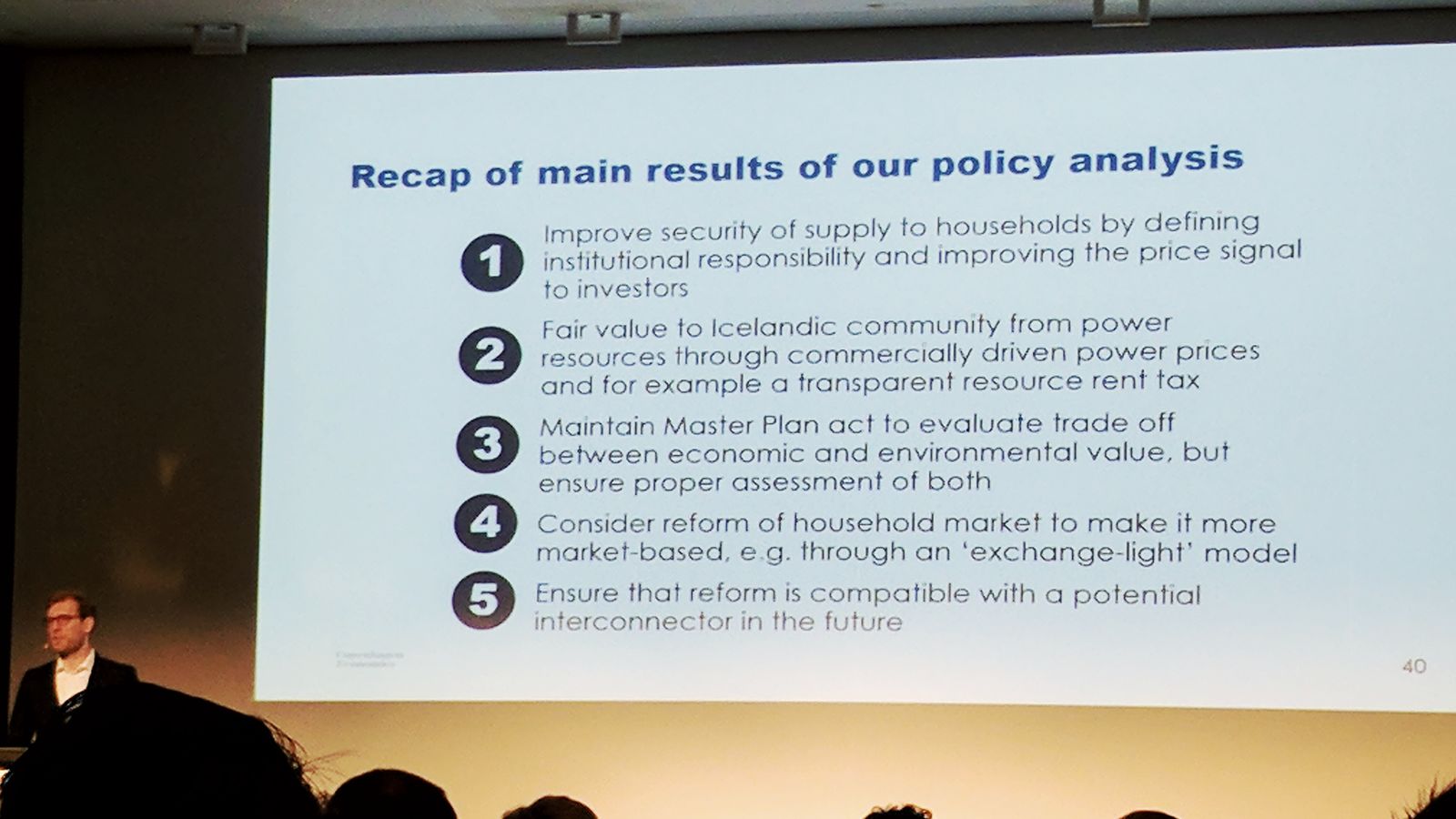ISE Students Attend Landsvirkjun Energy Markets Conference
Eight ISE graduate students sit in this morning on industry talks about the future of Iceland's energy markets.
REYKJAVIK, March 7 – Eight ISE graduate students including Berit Hanna Czock, and Marie Lovise Ve arrived at the Hilton Reykjavik Nordica intent on learning more about current topics and issues in the Icelandic energy sector. Held by Landsvirkjun , the National Power Company of Iceland, the conference brought together industry professionals, ministry officials and academics alike to talk about what the future of Iceland's energy markets might look like.
After breakfast and coffee was served at 8:00 to energize the room, the conference began with Þórdís Kolbrún R. Gylfadóttir, the Minister of Tourism, Industry & Innovation, setting the stage at 8:30. Shortly after, Hörður Arnarson, CEO of Landsvirkjun, elaborated on the arrangement of domestic electricity, giving their view of the Icelandic market.
With the stage set, owner Helge Sigurd Næss-Schmidt and senior economist Martin Bo Westh Hansen of Copenhagen Economics elaborate on their findings regarding potential energy market reforms in Iceland. Helge presented the two main issues as they saw it: first, the security of supply for households and SME's in the retail market and second the under-valuation of natural energy resources.
Expressing his concerns, Helge addressed that no clear legal body seems to be set for the responsibility of energy security and that in the current market there is a lack of price signals reflecting the health of the market and the potential for growth and investment in Iceland's energy sector. Helge also addresses that the current set value of natural resources is below level. He describes how a potential price increase in electricity would better reflect the natural resources being used to produce the electricity, but may scare off international business that are attracted to Iceland's low electricity prices.
Following this, Martin steps in explaining the five main results of Copenhagen Economics' analysis. With these remarks, Martin wrapped up the Copenhagen Economics analysis of the Icelandic market.

The duo were met with differing views from the crowd. ISE graduate student and economics major from Germany, Berit Hanna, noted that the most important message from the consulting firm to the Icelandic government and energy providers was that with industrial energy prices rising and almost matching that of household energy prices, providers may be more inclined to dispatch their capacity to industry rather than households, jeopardizing the energy security for Icelanders. Household prices are typically higher due to instability in demand and so the marginal costs of producing increase. Contrasting this with stable industry contacts that are being renegotiated to higher prices, there is increasingly no competition which is the more appealing and profitable market of the two.
Berit goes on to explain that their approach to guaranteeing energy security is through investment, made more attractive by increasing household energy prices and/or government subsidies. Regarding the repercussions of potential price hikes, ISE graduate student and Landsvirkjun intern Marie Lovise, shares similar opinions to Berit. As Marie puts it, many Icelanders are already unimpressed with the power intensive industries in Iceland and to raise the electricity prices for consumers as a result of increased competition from a market primarily composed of foreign interests just seems unfair.
Whether or not the suggestions put forth by Martin and Helge are put in practice, the group of ISE students agreed that it was a thought provoking experience. Other graduate students expressed that it was a great opportunity to connect with past professors who also attended the conference and to meet with industry to discuss current issues and topics in the energy markets. Until the next event, the students are back to the books preparing for the exam season to come.
